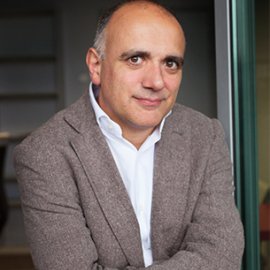History, University of Nantes, France

Octobre 2017 à Juin 2018
António de Almeida Mendes is a historian specialised in slavery and slave trades of early modernity (from 14th to 16th century) and the history of the Atlantic. He is a lecturer at the University of Nantes, founding member of the International Centre for Research into Slavery, member of the Research Centre on International History and Atlantic and, from 2013 to 2016, member of the National Committee for the Remembrance and History of Slavery. He is co-director of the STARACO program at the University of Nantes (STAtus, RAce and COlours in the Atlantic) which is intended to initiate a thought process on the construction of hierarchies and statuses inherited from slavery in Iberian worlds, as well as the PRALT program (the PRactice of ALTerity from the Mediterranean to the Atlantic, 15th-20th century) at the Casa de Velázquez (Madrid). He is in the process of finishing two books, Une histoire de la race dans l’Atlantique ibérique (A history of race in the Iberian Atlantic) and Relier et ordonner un monde de races. Histoires méditerranéennes et atlantiques des traites et des esclavages en péninsule Ibérique : XIVe-XVIe siècles (Linking and ordering a world of races: Mediterranean and Atlantic histories of slave trades and slavery in the Iberian peninsula: 14th-16th centuries).
Black Portugal: dependency, bonded labour and race (15th-19th centuries)
In the 15th century, the development of an Atlantic network linking southern Europe and West Africa, encompassing many different European and African societies, facilitated the movement of scholars, slaves, legates, traders, converts, renegades, peasants, seafarers and soldiers from one continent to the other. The number of Africans living permanently in Barcelona, Lisbon, Seville or Valencia thus increased. Several lines of questioning permeate the research project at IAS-Nantes:
1. What are the consequences for Portuguese society and economy of the large-scale presence of a slave population of African origin?
2.What are the trajectories of mulatto, pardos and negros (persons of mixed white and black ancestry born in Portugal) take in these cities of southern Europe?
3. Can we speak of a Portuguese social and economic model?
Modern-day Portugal and its overseas colonial areas thus emerge as a kind of laboratory in which to consider a chronology of forced labour systems and processes of racial hierarchy; an area which is heir to a Mediterranean history which is as African as it is European and Atlantic.
DE ALMEIDA MENDES,Antonio. Les esclaves africains d’Afrique et les diasporas du XVe au XVIIe siècle, in L’Afrique des routes, Actes Sud, 2017.
DE ALMEIDA MENDES,Antonio. Portugal, Morocco and Guinea : reconfigurations of the North Atlantic in the Middle Ages, Brill, 2017.
DE ALMEIDA MENDES,Antonio. Esclavage et race au Portugal : une expérience de longue durée, in Esclavages et subjectivités dans l’Atlantique luso-brésilien et français (xviie-xxe siècles), Myriam Cottias et Hebe Mattos (dir.), Saint Hilaire (éd.), 2016, Open édition Press, http://books.openedition.org/oep/771
DE ALMEIDA MENDES,Antonio. Escravidão e raça em Portugal: uma experiência de longa duração no Atlântico luso-brasileiro e francês (Séculos xvii-xx), Escravidão e Subjectividades, Myriam Cottias et Hebe Mattos (dir.), Saint Hilaire (éd.), 2016, Open édition Press, http://books.openedition.org/oep/778
DE ALMEIDA MENDES,Antonio. Le réveil du Portugal sur la scène esclavagiste atlantique, Les Cahiers de la Méditerranée, Ivan Armenteros (dir.), 2016 (ss. presse).
DE ALMEIDA MENDES,Antonio. Les traites, les esclavages et les sociétés ibériques à l’heure de la mondialisation, in La Péninsule ibérique et le monde 1470-1640, Etienne Bourdeu, Antonio de Almeida Mendes, Guillaume Gaudin, Natividad Planas, Paris, Atlande, 2014, p. 161-189.

